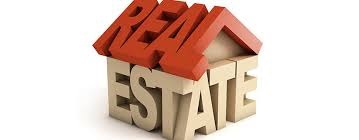In what could be seen as an indication of recovery in the real estate sector, there’s been a remarkable increase in property registration and revenue through stamps and registration duty after the lockdown. However, the government’s delay to fulfil its promise of reducing the duty is proving to be a dampener.
After a lull in the first quarter, property registrations gathered momentum in July, crossing the 1.5-lakh mark. In August, it touched 1.74 lakh as compared to 1.7 lakh in the same month last year. In September, 1.8 lakh documents were registered while it was 1.6 lakh last year. Till October 22, about 1.5 lakh documents were registered compared to 1.3 lakh during the corresponding period last year.
The revenue from stamps and registration duty recorded a steady growth in these three months with a collection of Rs 2,477 crore compared to Rs 2,372 crore during the same period last year. As against the target of Rs 5,913 crore till October 22, the revenue department collected Rs 4,353 crore.
“It may be a result of spurt in purchases which were deferred during the lockdown months. The market is emerging out of the Covid shadow. This despite the prevailing gloom in the market that has induced negative trends such as payment deferment, renegotiation of contract and defaulting on commercial rent,” said Vivek Mallya, chartered accountant.
The stakeholders, however, say recovery could have been quicker had the government delivered on its promise of reducing the stamp and registration duty as well as guidance value of properties.
In the 2020-21 budget, the government had proposed to reduce stamp duty from 5% to 2% for properties costing up to Rs 20 lakh. In May, it announced reduction of duty from 5% to 3% for properties costing between Rs 21 lakh and Rs 35 lakh.
The trade bodies had urged for reduction of stamp and registration duty from 5% to 3% for all properties costing above Rs 21 lakh. Revenue minister R Ashoka and home minister Basavaraj Bommai, who represent Karnataka in the GST Council, had said the government was considering slashing the duty. Bommai even felt the guidance value in Karnataka is exorbitant.
“The process, including an amendment to the law to implement the budget proposal to reduce duty for affordable houses, is under way. The demand to slash duty for all properties was discussed, but the government is yet to take a call,” said revenue secretary Anjum Parvez.
The stamp duty and registration fee (1% of property value) are the two components of the levy imposed based on the price of property that should be above the guidance value fixed by the government. The guidance value is the minimum price of the property fixed based on locality and individual project, and it was hiked by 5% to 25% in 2019.
“Reduction of duty and guidance value is the need of the hour. It will not just boost sales, but also have a positive effect on the economy. However, the government should ensure builders pass on the benefit to homebuyers,” said MS Shankar, general secretary of Forum for People’s Collective Efforts.

